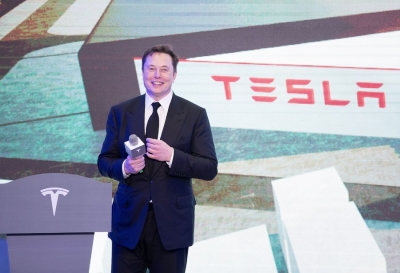The consequences of mixing business with politics could be devastating. And none should realize this better than Elon Musk, the world’s richest man, whose Tesla electric cars and showrooms are at the receiving end of violent protests from ordinary Americans these days. Their ire is all because of the influence he wields on the U.S. administration and the manner in which the Department of Government Efficiency (DOGE) is functioning. The protests, termed “Tesla Takedown,” have also spread to Canada and several European cities, where Musk is seen by some as a far-right figure. The campaign was initiated by a group of dissatisfied Tesla owners, along with celebrities such as actor John Cusack and Democratic lawmaker Jasmine Crockett. Some people have gone to the extent of setting Tesla vehicles on fire and engaging in other forms of vandalism.
Protesters aimed to intensify the movement against Tesla dealerships and vehicles in response to Elon Musk’s leadership of the newly established Department of Government Efficiency (DOGE) in Donald Trump’s second presidency.
In this role, Musk has gained access to sensitive information and shut down entire agencies in his efforts to reduce government spending. It is interesting to note that a significant part of Musk’s estimated $340 billion fortune comes from his stock in the electric vehicle company, which he continues to operate while collaborating with Trump. Following earlier, somewhat sporadic demonstrations, Saturday, March 29, saw the first concerted effort to encircle all 277 of the automaker’s showrooms and service centers across the U.S. Activists assembled at Tesla locations across New Jersey, Massachusetts, Connecticut, New York, Maryland, Minnesota, and Texas, the company’s home state. Outside a showroom in Dublin, California, they chanted slogans such as, “Hey, hey! Ho! Ho! Elon Musk has got to go!” This campaign, primarily led by former federal government employees, aimed to further exacerbate a recent downturn in the company’s sales.
Also Read: Protesters swarm Tesla showrooms over Musk’s crackdown on US officials
While Musk has downplayed these protests, the decline in Tesla sales has raised concerns among its investors. Many are now questioning the extent of Musk’s political connections and their impact on his business decisions. Following Trump’s election last November, investors initially viewed Musk’s partnership with the president as a beneficial move for Tesla and its ongoing efforts to establish a self-driving car network. This optimism contributed to a whopping 70% gain in Tesla’s stock from the election to Trump’s inauguration on Jan. 20, resulting in an additional $560 billion in shareholder wealth. However, nearly all of those gains have since disappeared due to investor concerns about potential backlash, declining sales in the U.S., Europe, and China, as well as Musk’s focus on overseeing DOGE. Meanwhile, BYD, the Chinese electric vehicle leader billed as the “Tesla killer,” has surpassed Tesla in annual sales.
In these extraordinary times, politics remains a primary concern for many individuals in India as well, with passionate disagreements arising even among family members and close friends. However, it is crucial for businesses to remain neutral, as political equations can change overnight. The impact of social media has made it easier than ever for companies to become entangled in political debates, often with disastrous consequences. A recent report highlights a striking statistic: between 25% and 41% of American consumers may choose to stop doing business with a company if they disagree with its political stance. Additionally, a notable 59% of those who leave do not return. These numbers underscore the serious repercussions of intertwining business and politics.
In India, too, the nexus between business and politics is widely prevalent and well-known. However, unlike in the US, where businesses have driven numerous innovations, major corporate groups in India—without exception—primarily expand by manipulating the banking system, exploiting national resources, and benefiting from cronyism facilitated by successive governments. It would be a positive shift if the Indian political class adopted a stricter stance toward businesses, much like it should toward bureaucracy. Such an approach could lead to a more balanced bureaucracy, a fairer business environment, and a more equitable distribution of the nation’s wealth. Instead of a select few reaping exorbitant profits at the expense of the average Indian, economic growth could benefit a broader section of society.







































